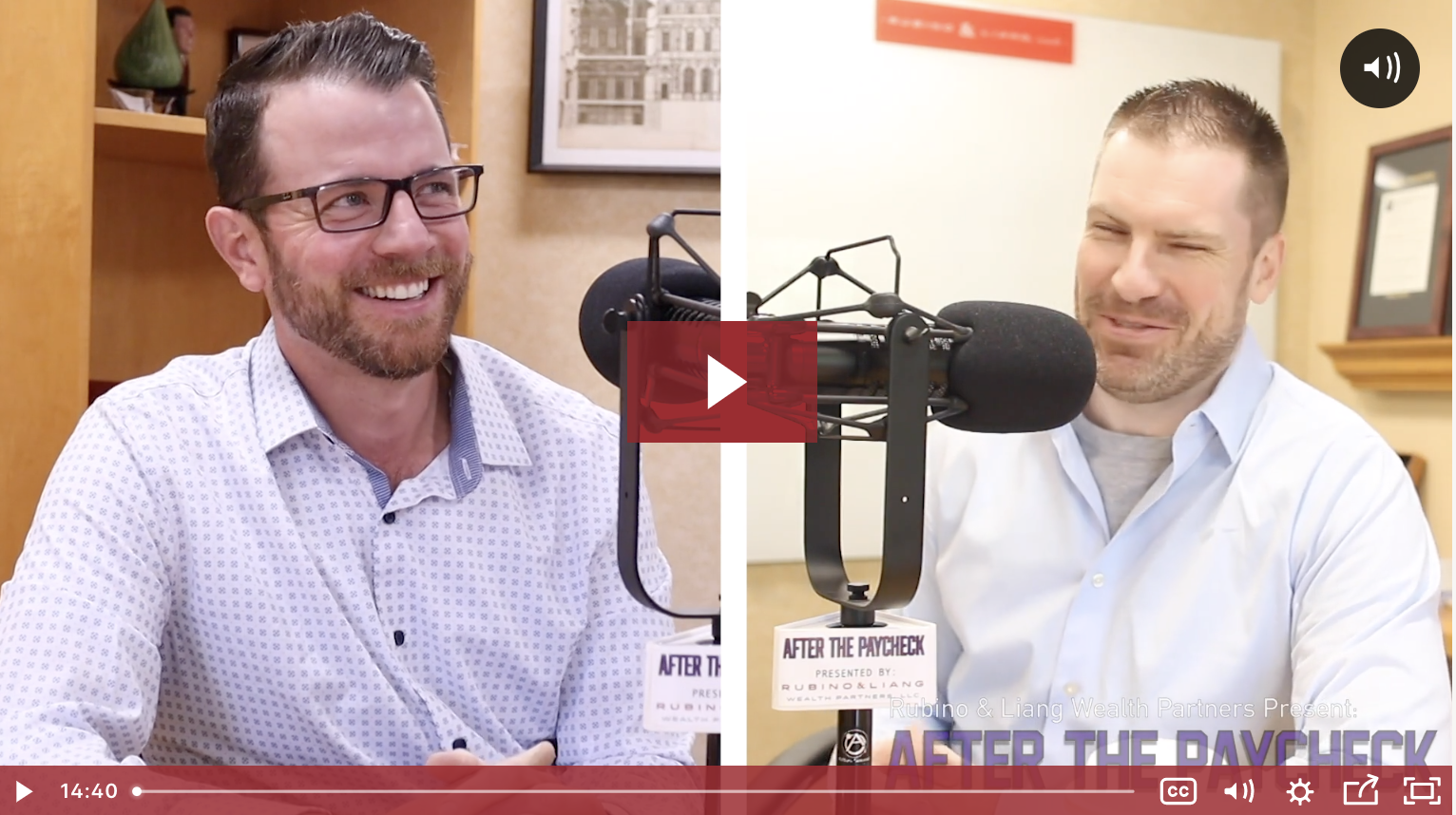25 min read
Why Your Portfolio Strategy Needs To Be Different Than When You Were Working
By: RL Wealth Partners Oct 19, 2020 10:43:08 AM

What’s your goal, financially speaking, for retirement? Most likely, its to make sure you have enough money to last through your years in retirement while living the lifestyle you planned for.
It sounds pretty straightforward, right?
Where it gets complicated is negotiating between two equally valid but CONFLICTING concerns with your money in retirement:
- the need for safety and principle preservation (you aren’t adding any more paychecks in to your retirement accounts...),
- and the need for growth to hedge inflation & other unexpected costs during life in retirement.
How do we balance these two conflicting concerns?


Subscribe to future episodes of After The Paycheck:
Ryan Marston and Adam Blye discuss why your retirement portfolio strategy needs to be different than when you were working, and how mentally make that adjustment before retiring so you can help maximize your probability of success in retirement.
Why your retirement portfolio strategy needs to be different than when you were working.
It All Starts with An Accumulation Vs. Decumulation Mindset
During the accumulation phase (your working years) of your life, it’s about saving: putting money in 401(k)s, IRAs, savings accounts, life insurance, etc. etc.,
but the decumulation phase is more about generating a sustainable income. It’s a pivot to having your money work for you effectively enough to avoid running out of money.
Withdrawal Options & Market Risk In A Time Of Retirement
A second thing to recognize as part of the decumulation mindset is understanding WHERE you are withdrawing your income from while in retirement.
During the accumulation phase, you most likely received a paycheck, and would allocate parts of that income to various things (bills, dinner, clothes, etc.). When you are in the decumulation phase, you need to draw from your assets, and how do you know which ones to take from at which time?
Preparing Yourself For A Well-Balanced Investment Approach
Coming back to balancing these conflicting concerns: the need for principle safety, but also the need for growth to hedge inflation and other unexpected costs… What are the next steps if you were hoping to retire in the next, 5 to 10 years, or even SOONER? Who should you talk to help address these two concerns to make sure your portfolio’s strategy is going to help maximize your probability of success in retirement?
Looking for easy access to the audio of these episodes?
You should subscribe to the After The Paycheck Podcast!
Head to where you stream your podcasts and search for "After The Paycheck" to take the audio from these episodes on the road. Enjoy!
 |
 |
 |
Where To START When Thinking About Retirement And Your Income
Earlier this year we shared a post about The "Ostrich effect", which refers to the psychological...
3 Things You Need To Know When Planning For Retirement
Introduction:For most of my adult life and career as a broadcast journalist, I focused on daily...